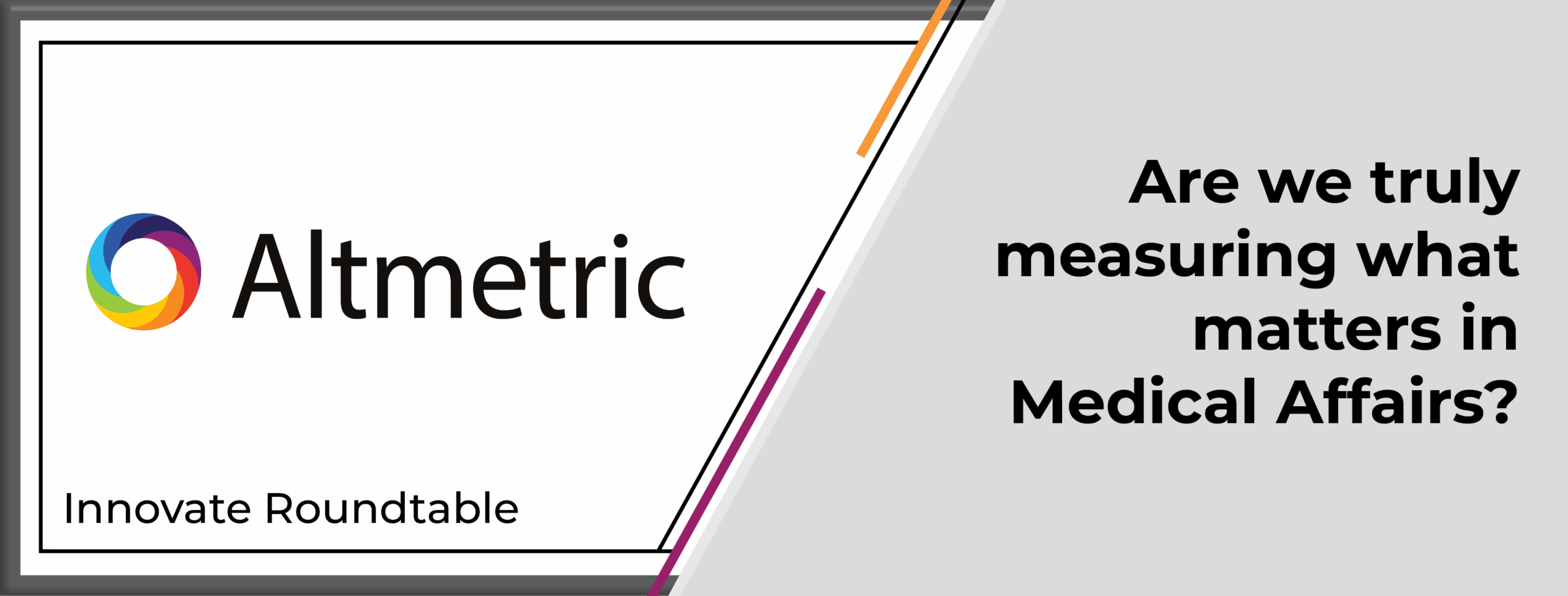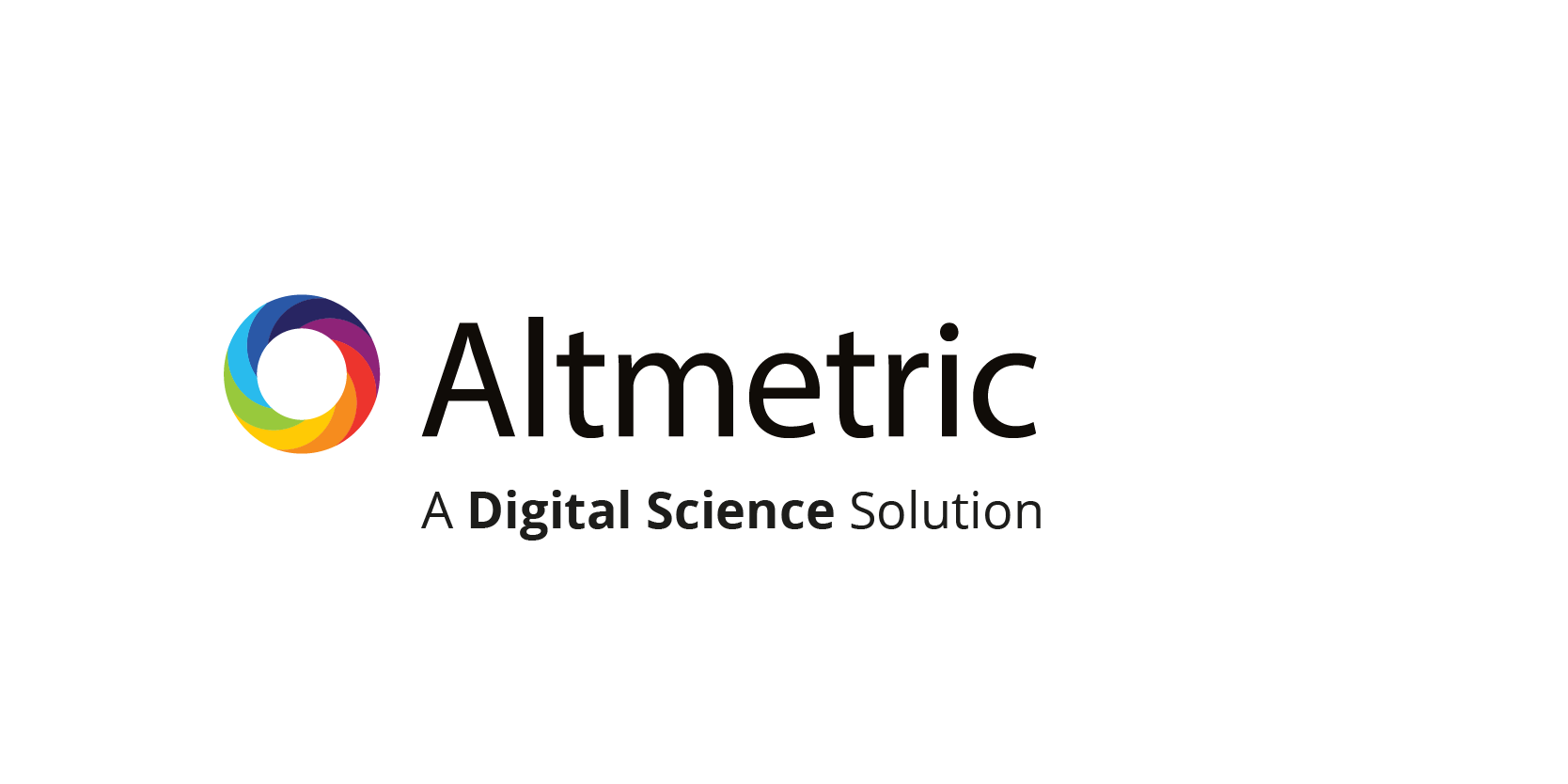A persistent question for Medical Affairs professionals is whether they have the technology needed to truly measure the real-world impact of their publications. To address this, Altmetric recently hosted a roundtable, “Measuring What Matters: Leveraging Data and Technology for Strategic Engagement and Impact in Medical Affairs.” This discussion
brought together nine global leaders and experts who explored how data and technology are transforming the success of Medical Affairs.
This engaging discussion emphasized the transformative influence of metrics, data, and technology, particularly Artificial Intelligence (AI), on the strategic role of Medical Affairs.
There’s a critical need to better align performance metrics with what truly matters in this field: behavior change, patient outcomes, and cross-functional alignment.
Moving beyond traditional metrics to capture real impact
A key theme emerged during the session: the need to fundamentally reshape how we evaluate success. Participants emphasized a crucial shift away from traditional metrics and toward capturing meaningful outcomes and real-world influence. It became clear that the importance of this shift highlights that metrics like the number of engagements or publications offer limited insights unless they are aligned with broader strategic objectives.
Participants discussed innovative measurement strategies such as customer surveys, monitoring changes in stakeholder sentiment, and assessing the adoption of medical strategies in practical settings. These approaches resonate with Altmetric’s method of attention tracking, where mentions across policy documents, mainstream media, and public platforms often provide a clearer indication of impact over sheer volume. This evolution in measurement underscores the importance of aligning metrics with strategic goals to truly understand influence and effectiveness.
Takeaways from the discussion:
- Storytelling VS slide decks: Transformative approaches to enhance internal communications success
While traditional methods such as slide presentations were noted as a default tool for internal reporting, the discussion highlighted a growing trend towards more innovative techniques including storytelling. One expert highlighted the use of visually compelling
infographic newsletters to summarize key outcomes post-congress, an approach that mirrors Altmetric’s commitment to data visualization and clarity. This example demonstrates how clear and concise communication can help bridge the visibility gap between Medical Affairs and other corporate functions.
- The true validation of excellence occurs when it is acknowledged by the field
Dr. Zoran Hasanbasic M.D., Vice President of Global Medical Affairs Strategy & Integrated Evidence Generation, Therapeutic Area Ophthalmology at Bayer participated in the discussion and shared that, in their organization, success is most clearly seen when recognition comes directly from the field. When respected thought leaders spontaneously acknowledge the contributions of medical teams, it indicates not only operational excellence but also relational strength and strategic alignment. This type of feedback, while anecdotal, provides compelling validation that goes beyond KPIs.
- Utilizing AI to improve strategy and efficiency, rather than replacing human abilities
Artificial Intelligence is omnipresent these days, and it’s no wonder that its application in the field of Medical Affairs and scientific communications was a key topic of the discussion. AI is increasingly being used by Medical Affairs teams to streamline operations, analyze sentiment from field surveys, draft content, summarize scientific outputs, and provide operational support for Medical Science Liaisons (MSLs). While these advancements can significantly speed up evidence synthesis and enhance content quality, experts emphasized that the use of AI should be framed as a self-development tool that enhances
human capability instead of replacing them.
- Rethinking KPIs for a strategic function
As the field of Medical Affairs continues to evolve from a support function to a strategic driver, new forms of measurement are required. KPIs now often reflect deeper goals, such as ensuring that critical data is published in top-tier journals, integrated into treatment guidelines, or seen by the right decision-makers. Planning is increasingly structured around engagement strategies with key experts, health systems, and payer audiences.
Some participants also noted that in rare disease or resource-constrained settings, KPIs may focus more on qualitative measures such as improved diagnosis rates or enhanced patient satisfaction further emphasizing the need for contextually relevant metrics.
- Toward meaningful measurement in Medical Affairs
This session also reaffirmed a shift already underway: success in Medical Affairs is no longer defined by volume, but by value. Whether it’s influencing behavior, informing policy, or catalyzing scientific adoption, the ability to demonstrate impact has become more
important than simply reporting activity.
As technology continues to advance and AI tools become more integrated, the challenge for Medical Affairs will be not just to collect data, but to turn it into actionable, strategic intelligence. With the right metrics, and the right storytelling, Medical Affairs professionals can lead the way in demonstrating the real-world impact of science.
Explore how Altmetric can help Medical Affairs teams
INTERESTED IN HOSTING A ROUNDTABLE?
This article summarizes a Roundtable hosted by a MAPS Partner Circle member that brought together leading experts from across the industry. If you are a solution provider interested in hosting your own Roundtable, please check out our Media Planner or contact Luke with MAPS: [email protected].




